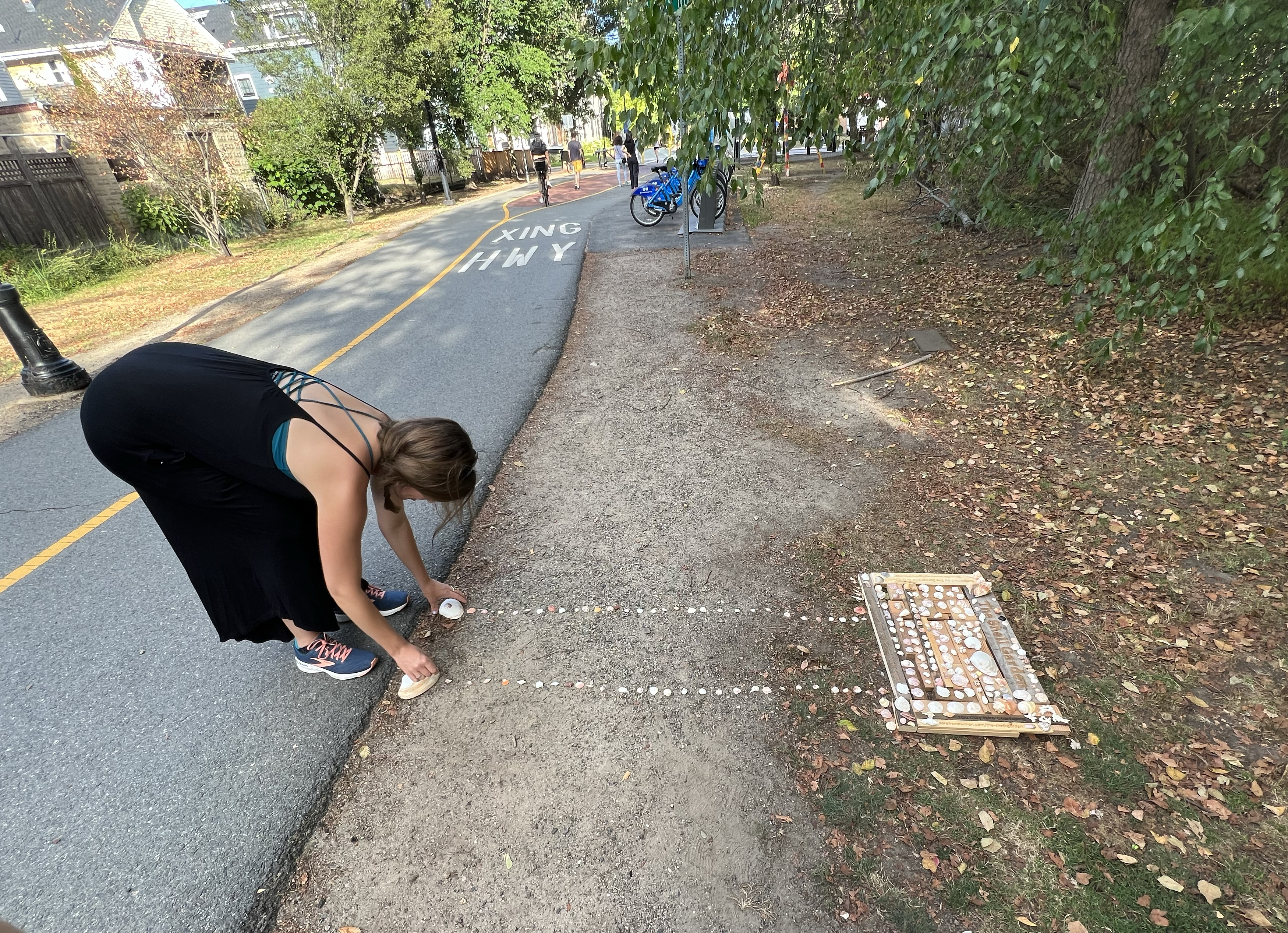The Shell Garden
An interactive installation along the Somerville Community Path, August-October, 2022.Everything comes from and returns to the earth.
Made of reclaimed, laser-engraved wood, and found seashells from the artist’s collection. Supported by the Somerville Arts Council Fellowship and the Massachusetts Cultural Council.
Special thanks to Sonia Ralston, Sabrina Madera, Asa Hadley, and Shreya Tewari.



Oceans around the world are increasing in water temperature, which has drastic consequences for the entire marine ecosystem. This includes coral bleaching, when coral discharges its algae and turns a white color, severely weakening the coral and the thousands of species that rely on its health. The accelerated melting of polar ice caps has increased the salinity of some areas of the ocean, which threatens the ecosystem of zooplankton, the catalyst of success for the marine food chain. At the same time, industrial fishing companies are overfishing, and factories around the world are dumping toxic waste and garbage into the ocean. With this increase of plastic pollution, ocean biodiversity decreases.
Global warming has also destroyed the habitats of many marine animals. For example, the number of mollusks in the Mediterranean Sea has decreased significantly over the last few decades. In addition to rising sea temperatures, marine animals face other climate change threats as well, such as harmful noises from fuel and cargo ships that interfere with echolocation by marine mammals. Climate change has also perpetuated harmful ocean acidification. As the ocean absorbs atmospheric CO2, it reacts with the seawater. High levels of acidity have proven very harmful against marine animals, coral, and other lifeforms. The rising sea level will not only affect the residents of the water, but also people on land.
By 2050, rising sea levels will affect over 570 cities, and by 2100, the higher sea level will threaten 200 million people who live in low coastal areas. Be mindful of your own consumption, waste, and carbon footprint. If you can, donate to programs that clean the oceans, and encourage your political representatives to focus on the climate crisis.
Credits
Studio assistants: Sonia Ralston & Sabrina Madera
Research assistant: Asa Hadley
Installation companion & photos: Shreya Tewari
& The Somerville Arts Council Fellowship & the Massachusetts Cultural Council
Sources
Broom, Douglas. “This is how climate change is impacting the ocean - and what we can do about it.” The World Economic Forum, 11 May 2021.
Cross, Daniel T. “Climate change is driving mollusks extinct in the eastern Mediterranean.” Sustainability Times, 12 January 2021.
McCarthy, Joe. “Climate Change Is Devastating Marine Life as the World's Oceans Warm: Report.” Global Citizen, 7 April 2021.
Monterey Bay Aquarium Research Institute. “Climate change and the ocean.” MBARI, 2019.
National Geographic. “Ocean Impacts of Climate Change.” National Geographic Society, 20 May 2022.